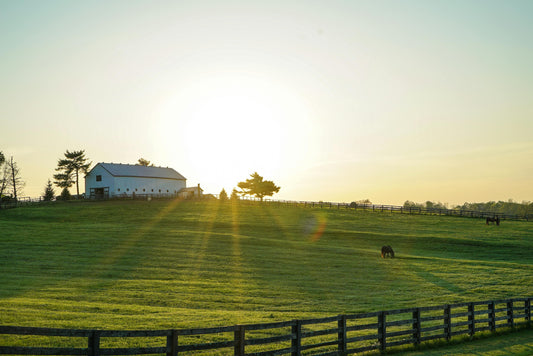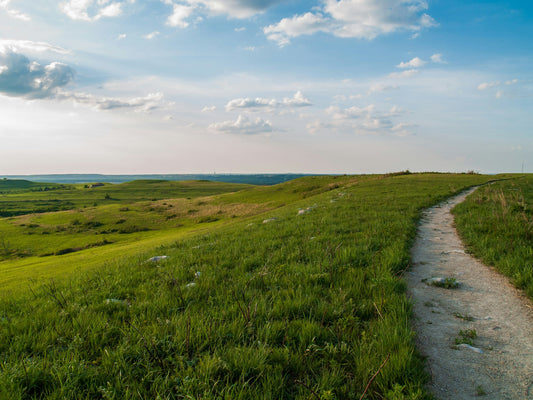The Legality of Hemp in the District of Columbia: Complete Guide
In many cases, due to fast developments, different states have different legal frameworks, and some jurisdictions are complicated. Federal regulation helps make D.C. uniquely so. The local government and emergency legislation passed recently, and cannabis enthusiasts are eager to know more about “Are Delta 9 gummies legal in District of Columbia?”
Although federally compliant hemp products with up to 0.3 percent Delta-9 THC are legal under the 2018 Farm Bill, D.C. has also implemented rules to track and control cannabis-derived products now appearing.
This includes the unlicensed 'gifting' stores that have sprung up in the area. Due to these significant shifts and other reasons, looking inside and out of D.C. law and federal guidelines that regulate Delta-9 THC legality is essential.
Defining Hemp and Delta-9 THC in D.C.
Understanding Hemp and Cannabis Under Federal Law
As defined by the federal government, hemp for agricultural purposes means the Cannabis sativa L. plant species and all its parts (and whether growing or not, such as stalks, leaves, flowers, seeds, and cannabinoids) containing not more than a total Delta-9 tetrahydrocannabinol (THC) concentration of 0.3% on a dry weight basis.
In 2018, the Farm Bill called out hemp vs marijuana using a Delta 9 THC measurement that tells them in legal terms apart from getting you high. That distinction made the cultivation, processing, and sale of hemp-derived products at or below 0.3% THC legal under federal law.
The Legal Definition of Hemp in D.C.
D.C.’s definitions of hemp are much like federal standards: Hemp is Cannabis sativa L. and has a THC level that does not exceed 0.3 percent on a dry weight basis.
Unlike D.C., though, its cannabis is strictly regulated as to how it can be sold and distributed, as closely as its cautious stance on products made of cannabis allows.
D.C. has permitted hemp products to come to market by aligning with the federal THC thresholds, which answers how are Delta 9 gummies legal in District of Columbia.
Still, it recently enacted an emergency law restricting who could sell products and under what conditions.
Recent Legislative Actions Impacting Delta-9 THC and Hemp Shops in D.C.
Emergency Legislation to Address Unlicensed Cannabis "Gifting" Shops
D.C. enacted emergency legislation in January 2024 to respond to the emergence of "gifting" shops or unlicensed businesses that give away cannabis products as a part of a sale for something else.
According to this law, the Alcoholic Beverage and Cannabis Administration (ABCA) is allowed to give cease and desist orders, levy fines, and penalize businesses involved in distributing cannabis products except those under a licensed medical cannabis program.
Those bills seek to limit the selling of unregulated cannabis and hemp products by those shops, such as Delta-9 THC products.
Implications of Emergency Legislation on Hemp-Derived Delta-9 THC Products
Delta-9 THC products made from hemp (below the 0.3% limit) are federally legal, which is why we are optimistic about “Are Delta 9 gummies legal in District of Columbia?”
D.C.’s recent emergency ban imposes extra scrutiny on where and how such products can be sold.
This means that new rules apply to unlicensed shops selling federally compliant hemp products with Delta 9 THC to avoid penalties. The new emergency legislation is likely to put the oxygen supply on a tighter leash, with the possibility of local businesses and consumers being restricted.
Enforcement Measures by ABCA and Penalties for Non-Compliance
Under this legislation, the ABCA regulates businesses' con and duct inspections, among other duties, and enforces penalties on non–compliant operations. The severity of the infraction will determine whether warnings, fines, or closure orders will be placed in the businesses.
As one example, a shop that refuses to cease selling Delta 9 THC products will likely receive a fine or have its business license revoked. These protections are the latest in a series of measures designed to assure safe cannabis use in D.C. and regulate cannabis and cannabis-derived products.
Legal Status of Delta-9 THC Products in D.C.
The 2018 Farm Bill states that as long as any Delta 9 THC in hemp products is under acceptable concentrations of 0.3%, it is legal.
Legal products include gummies, tinctures, oils, and topicals as long as they don’t contain more than the THC threshold allowed. That is how we get the right answer to, “Are Delta 9 gummies legal in District of Columbia?”
This then allowed consumers the opportunity to access nonintoxicating wellness products containing cannabinoids sans the psychoactive intoxicating effects. However, there is additional regulation in the District of Columbia; not all are entirely federally legal, but they are not readily accessible when you have local enforcement policies.
Local Restrictions and Implications for Delta-9 THC Gummies
If you are still confused about “Are Delta 9 gummies legal in District of Columbia?” here is a more precise answer!
In D.C., Delta-9 THC gummies and other edibles that comply with federal THC limits are legal as they meet federal law. But the quandary is being tossed into companies selling such products but without a cannabis retail license, thanks to recent emergency cannabis legislation.
At the same time, with heightened scrutiny coming down on unlicensed shops that sell Delta-9 THC edibles or other hemp products, D.C.’s regulatory environment needs to be well known by businesses.
Consumer Access to Delta-9 THC Products in D.C.
The new hemp shop restrictions may make it difficult for consumers asking, “Are Delta 9 gummies legal in District of Columbia?” and looking for Delta-9 THC products that meet the federally allowed THC limits to purchase those items in D.C. Hemp-derived products are available to be purchased online.
Still, the law banning the distribution of cannabis without a license may restrict the availability of Delta-9 THC products in local stores. For this reason, it is advised to purchase from respectable internet sources or licensed Dispensaries in these laws.
Compliance and Regulatory Requirements for Businesses
Securing Licenses and Permits
For companies looking to distribute Delta-9 THC products, they have to do the legal things within D.C.'s landscape to acquire the current license. Licensed cannabis retailers and medical marijuana dispensaries can sell customers cannabis and hemp products. But unlicensed shops can only do so much and risk being penalized. Businesses should consult the ABCA or a legal expert to get the required licensing and follow local law.
Adhering to THC Limits and Testing Standards
To qualify as hemp under federal definition, a dry weight of 0.3% THC or less is required for all Delta-9 THC products in D.C. To comply with products, businesses should also test THC regularly, working with accredited laboratories to prevent regulatory problems.
Testing accurately and labeling also protects businesses from being taken to court for mislabeling or exceeding THC limits.
Transparency in Labeling and Product Information
Businesses that sell Delta 9 THC products should be clear on THC content, serving size, and consumption guidelines. Emergency regulations promulgated by D.C. may include additional labeling standards to protect the consumer and inform him of what his product contains.
Q.R. codes or links to lab reports can be included to make the process more transparent. This allows consumers to check whether products hitting the shelves contain the required amount of THC and meet the required quality standards.
Legal and Regulatory Challenges for Delta-9 THC in D.C.
That 2018 Farm Bill legalized hemp-derived Delta 9 THC at 0.3% THC or less, but D.C. local laws complicate things, adding restrictions that keep some of the federally legal products banned at the regional level.
Businesses face complications because they are subject to complicated dual regulation, as local enforcement efforts tend to target unlicensed shops. The regulatory difference shows the difficulties of working in a state that has cannabis laws that compete with federal guidelines.
Potential Future Legislation and Its Impact on Delta-9 THC Sales
The D.C. Council’s emergency law may be a precursor to even more laws that further govern hemp-derived Delta 9 THC products. Future policies require stricter labeling, advertising, and distribution rules or a ban on selling specific products in the District.
Therefore, businesses are expected to pay attention to the legal development in this field of business and practice, for if new laws are introduced, companies should join the practices accordingly.
Legal Risks for Non-Compliant Businesses
Hemp and Delta 9 THC in D.C. can be risky to do business in because of non-compliance with the regulations. Furthermore, non-compliant companies risk damaging their reputation and losing customers’ trust.
However, to minimize these risks, businesses are advised to engage in compliance audits regularly, run transparent business practices, and, where unsure, consult legal advice regarding D.C.’sD.C.'s particular hemp product regulations.
Future Outlook for Delta-9 THC Legality in D.C.
As the hemp and cannabis industries move forward and hopefully continue to evolve, D.C. could further regulate products containing Delta-9 THC. These could include new licensing guidelines, new product safety standards, or more explicit guidelines on how to discriminate between hemp and cannabis.
To have pre-guesses, businesses must keep abreast of upcoming legislative sessions and ABCA announcements.
Market Demand for Hemp-Derived Delta-9 THC Products
Demand for non-intoxicating wellness options is aiding consumer interest in hemp-derived Delta-9 THC products. Yet, as such demand continues to arise, it will likely prompt businesses to innovate within regulatory frameworks to produce consciously compliant products to cater to consumer needs.
If you grow hemp, its cannabis Delta 9 THC is legit, and it can be sold at licensed dispensaries and with online retailers. This opens up the market more as people recognize the benefits of hemp and get a clear answer to, “Are Delta 9 gummies legal in District of Columbia?”
Challenges and Opportunities for Businesses
Businesses in the hemp industry will face challenges and opportunities operating within the D.C. regulatory framework. In a regulated market, where competition is tough, companies with a competitive advantage know that compliance, transparency, and quality matter.
Having made compliance investments to build consumer trust, businesses can alter course to D.C.’s regulations and be ready to capitalize as the cannabis and hemp industries route course.
Conclusion
Legally, Delta-9 THC within the District of Columbia exists in a gray area between federal regulations and local regulations. Although hemp-derived Delta 9 THC is federally legal at this point, the District’s recent emergency legislation demonstrates the District’s intention to regulate cannabis-related products and ensure consumer safety.
The regulations for businesses are stringent, leaving businesses no room to stick to one thing, and compliance needs to be faster; labeling must be clear, and federal and local standards have to be understood.
With D.C. continuing to work towards refining its cannabis laws, stakeholders in the Delta-9 THC market must remain on top of regulatory news about “Are Delta 9 gummies legal in District of Columbia?” to do well.









